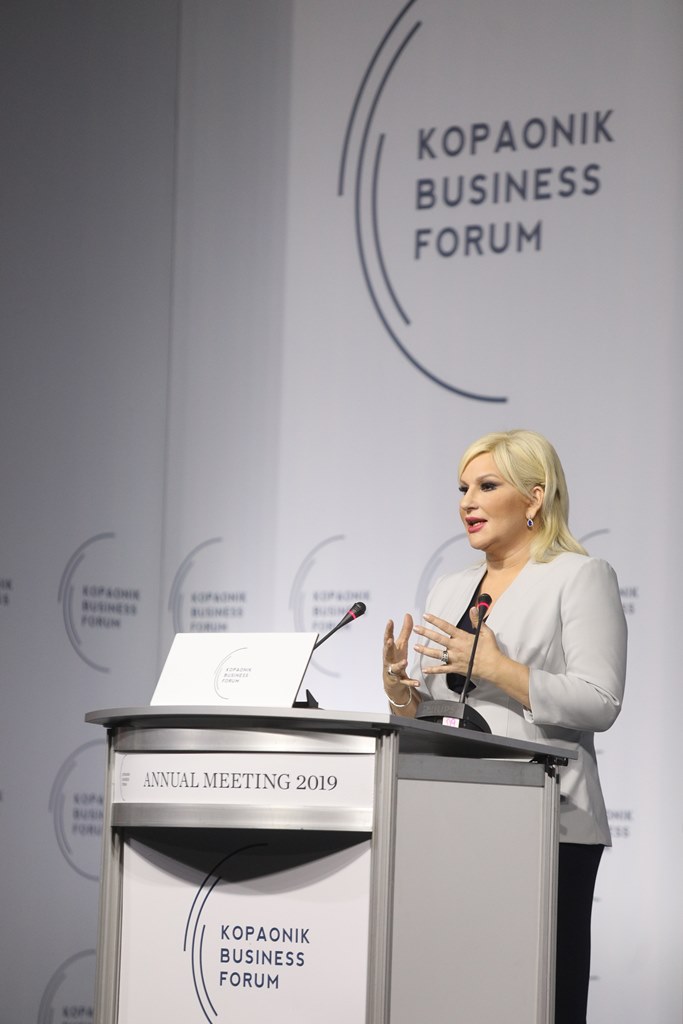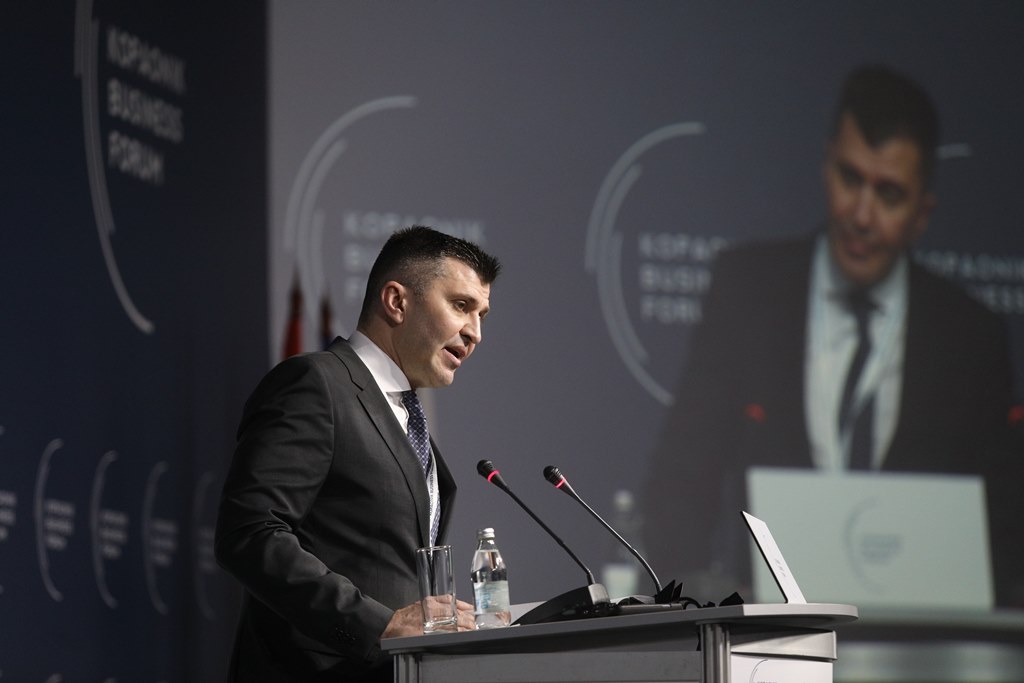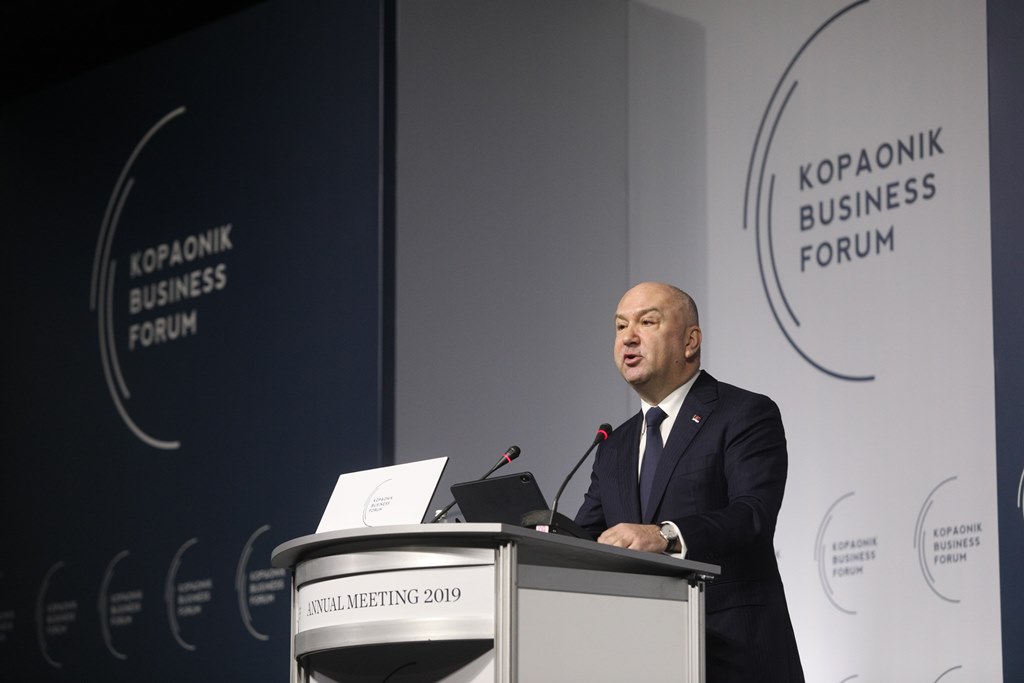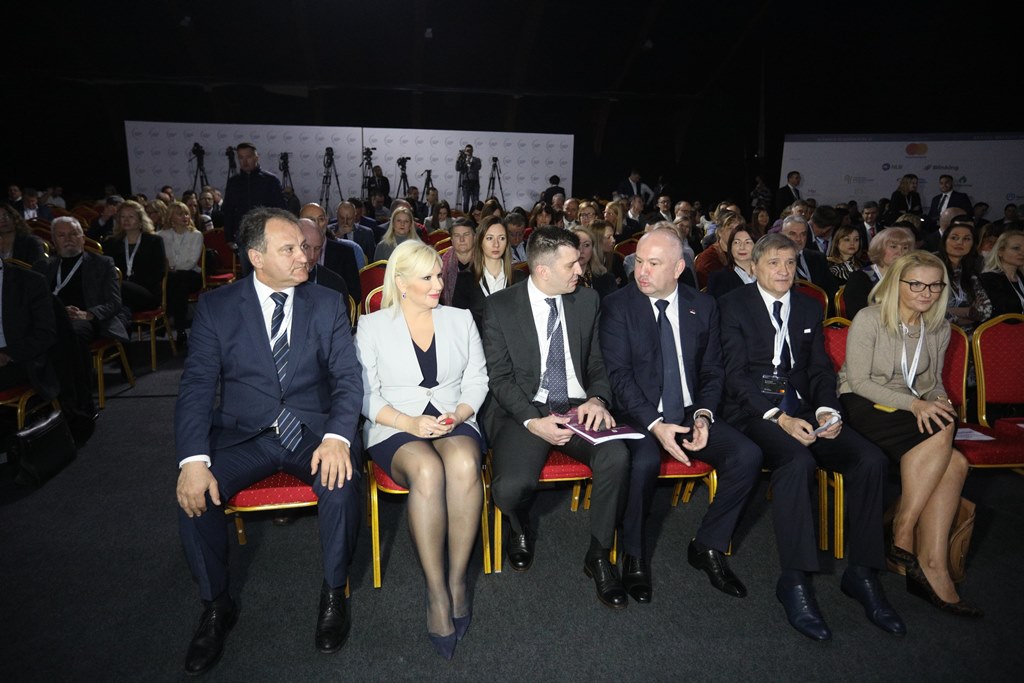The second day of the Kopaonik Business Forum started with a plenary session entitled Influence of Infrastructure Development, Innovation and Active Employment Policy for Growth addressed by Zorana Mihajlović, Deputy Prime Minister of the Republic of Serbia and Minister of Construction, Transport and Infrastructure, Zoran Djordjevic, Minister of Labor, Employment , veteran and social issues, and Nenad Popovic, Minister without Portfolio, in charge of innovation and technology.

This year will be a turning point for the development of infrastructure, the past must be left behind and we will go faster in the future, some of the conclusions of Minister Zorana Mihajlovic, who announced the start of a new investment cycle worth five billion euros. She stated that this year the investment in construction of highways, new corridors that will connect Serbia with the region, investments in railways, new and fast lanes, water transport and further development of air traffic will begin. The construction of the “Mira” highway from Niš to Merdare, the Moravian corridor, the Pojate – Preljina highway and the motorway connecting Serbia and Bosnia and Herzegovina.



Mihajlovic added that this year Nikola Tesla Airport will have more than six million passengers, that the Nis airport will have a growth of at least 10 percent, or that it will have between 380,000 and 400,000 passengers.
Minister of Labor, Employment, Veterans and Social Affairs Zoran Djordjevic is convinced that Serbia is going in the right direction and points out that from January 2018 to January 2019, slightly more than 62,000 new employees were registered, saying that this means that we can expect with certainty we have a single-digit unemployment very soon. He said that one of the problems, not only Serbia but also other countries, the lack of labor and economic migration, but also one of the solutions to this problem is the creation of new jobs, dual education, and the adjustment of education with the needs of the economy.

Digital economy is one of Serbia’s priorities, and without a digital economy, there is no sustainable economic growth, concluded Nenad Popovic, the minister without portfolio, in charge of innovation and technology, adding that much needed involvement of information and communication technologies in all areas of economy and society is necessary.
IT is one of the few sectors whose exports in the last two years are growing faster than imports and this is convincingly the healthiest branch in Serbia. Minister Popovic said that for the first time in 2018, revenues from IT services were higher than the revenues of tourism and transport, and that IT gave a key contribution to GDP growth in reducing the foreign trade deficit:
“The Serbian Government is aware that we do not have the luxury to miss another technological revolution, and that’s why we will do everything in our power to maintain the current pace of ICT sector growth and make Serbia become one of the leaders in the digital economy.”
The dynamic growth of IT services exports positively affects the image of our country, because Serbia is becoming recognized as a state with high-quality, not cheap labor.